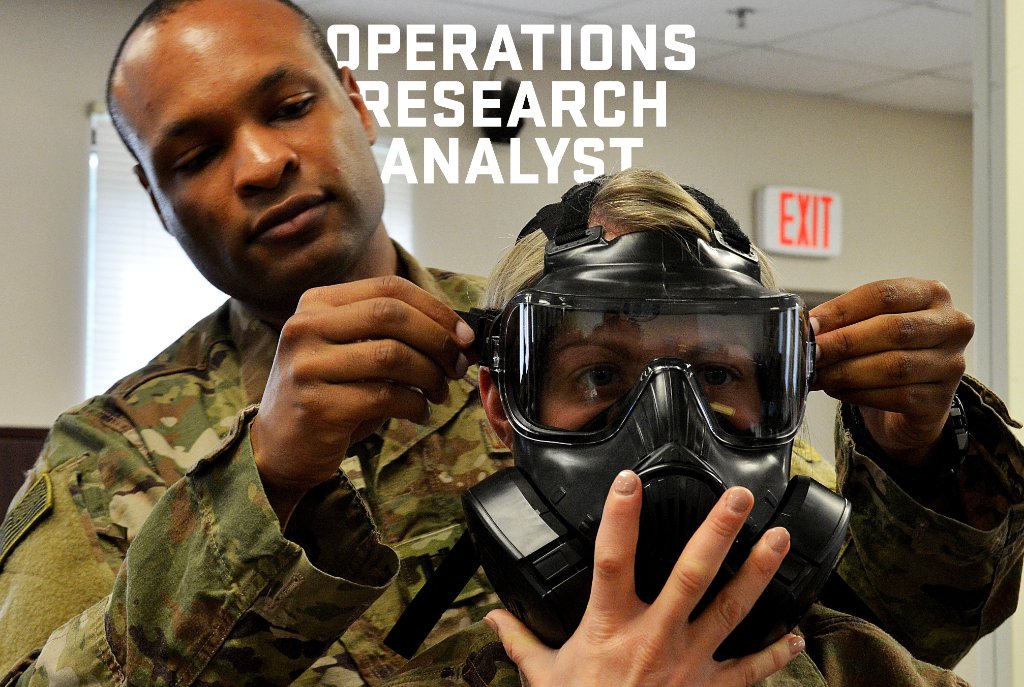

- #OPERATIONAL RESEARCH ANALYST HOW TO#
- #OPERATIONAL RESEARCH ANALYST FULL#
- #OPERATIONAL RESEARCH ANALYST SOFTWARE#
- #OPERATIONAL RESEARCH ANALYST FREE#
Operations research analysts may be a full-time member of a company's staff or hired just to handle special projects on a contractual basis through consulting firms. What is the workplace of an Operations Research Analyst like?
#OPERATIONAL RESEARCH ANALYST FREE#
Some of them are also conventional, meaning they’re conscientious and conservative.ĭoes this sound like you? Take our free career test to find out if operations research analyst is one of your top career matches. They are curious, methodical, rational, analytical, and logical. They tend to be investigative individuals, which means they’re intellectual, introspective, and inquisitive.

Operations research analysts have distinct personalities.
Humanitarian relief agencies use it to plan for disasters and, when disaster strikes, to rush food and medicine to those in needĪre you suited to be an operations research analyst?. Airlines use it to schedule flight crews and flights, to protect passengers, and to set prices. Army uses it to plan the delivery of supplies and to fight terrorism IBM, Intel, and HP use it to strengthen management, improve the way they manufacture, and reduce resource use – all to create less expensive computers and smartphones. LinkedIn and Google use it to make behind-the-scenes connections among personal profiles. Communicating results and recommendations, not only to colleagues but also to supervisors and executivesĮxamples of where operations research is used:. Interpreting the meaning of information for others. #OPERATIONAL RESEARCH ANALYST FULL#
Making full use of creative thinking abilities. Gathering data needed to solve those problems. #OPERATIONAL RESEARCH ANALYST SOFTWARE#
Spending lots of time on the computer with sophisticated math software.Typical duties and skills of an operations research analyst are: An operations researcher's job would be to determine the various alternatives that are available - and then to carry out an analysis that would enable him/her to assess them objectively and recommend the most suitable one.
#OPERATIONAL RESEARCH ANALYST HOW TO#
The problems they tackle usually involve designing systems to operate in the most effective way or figuring out how to allocate scarce human resources, money, equipment, or facilities.Ĭompanies try to get the most value out of their data and analytics platforms investments, and need the right individual to take it from raw data to an intelligent asset for business. Operations research analysts are high-level problem-solvers who use advanced techniques, such as big data mining, optimization, statistical analysis and mathematical modeling, to come up with solutions that help businesses and organizations operate more efficiently and cost-effectively. Operations research originated in World War II with military planners, but businesses and other organizations soon began adopting the techniques. What does an Operations Research Analyst do?
What is the workplace of an Operations Research Analyst like?. What does an Operations Research Analyst do?. 
What is an Operations Research Analyst?. Study and analyze information about alternative courses of action to determine which plan will offer the best outcomes. Specify manipulative or computational methods to be applied to models. Present the results of mathematical modeling and data analysis to management or other end users. Prepare management reports defining and evaluating problems and recommending solutions. Perform validation and testing of models to ensure adequacy and reformulate models as necessary. Observe the current system in operation and gather and analyze information about each of the parts of component problems, using a variety of sources. Formulate mathematical or simulation models of problems, relating constants and variables, restrictions, alternatives, conflicting objectives, and their numerical parameters. Educate staff in the use of mathematical models. Develop business methods and procedures, including accounting systems, file systems, office systems, logistics systems, and production schedules. Develop and apply time and cost networks to plan, control, and review large projects. Design, conduct, and evaluate experimental operational models in cases where models cannot be developed from existing data. Define data requirements and gather and validate information, applying judgment and statistical tests. Collaborate with senior managers and decision makers to identify and solve a variety of problems and to clarify management objectives. Collaborate with others in the organization to ensure successful implementation of chosen problem solutions. Break systems into their components, assign numerical values to each component, and examine the mathematical relationships between them. Analyze information obtained from management to conceptualize and define operational problems.







 0 kommentar(er)
0 kommentar(er)
